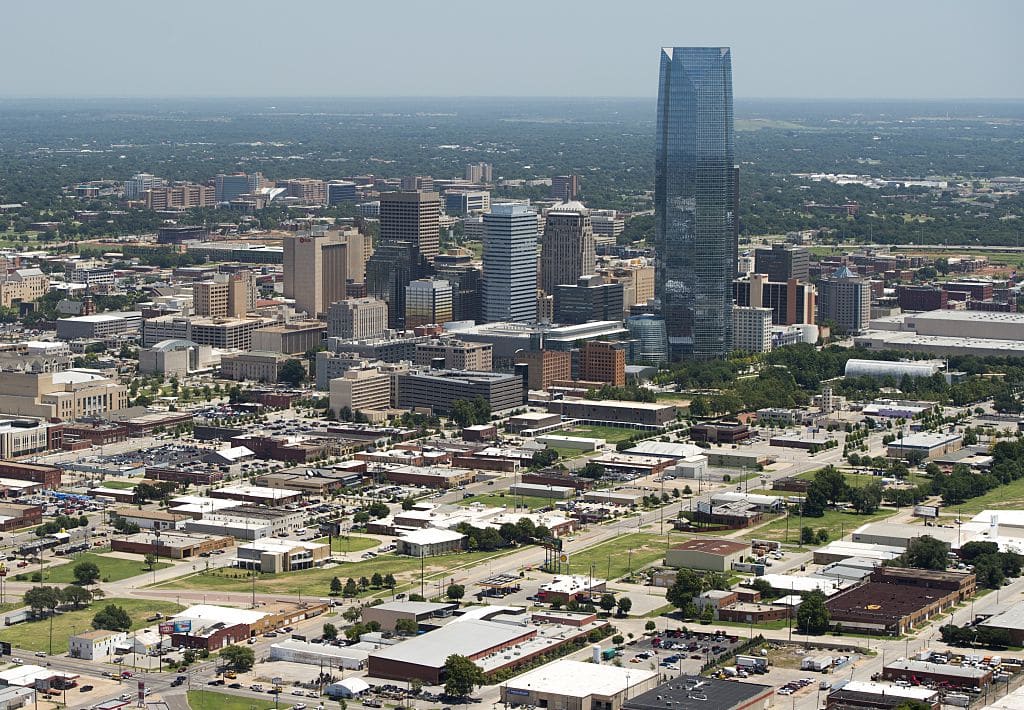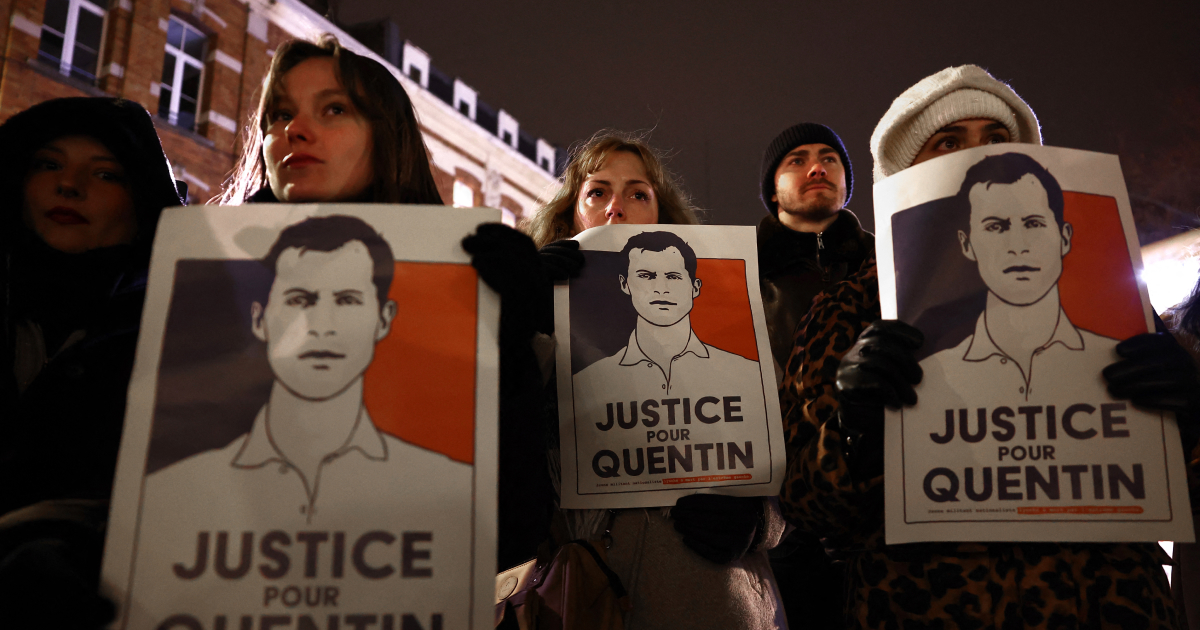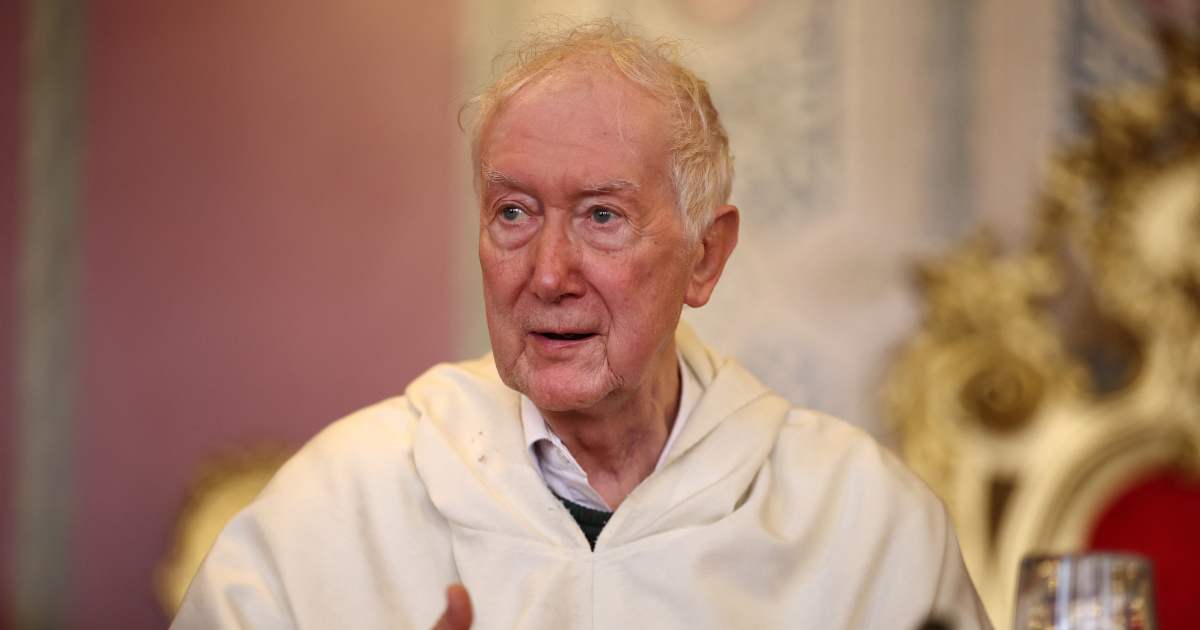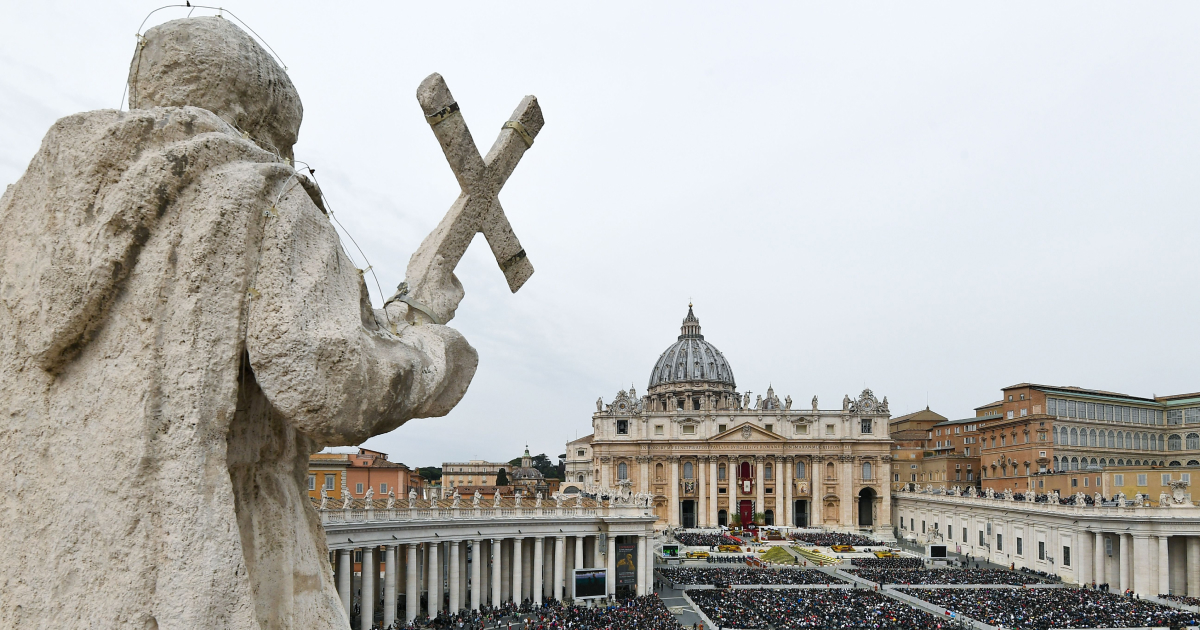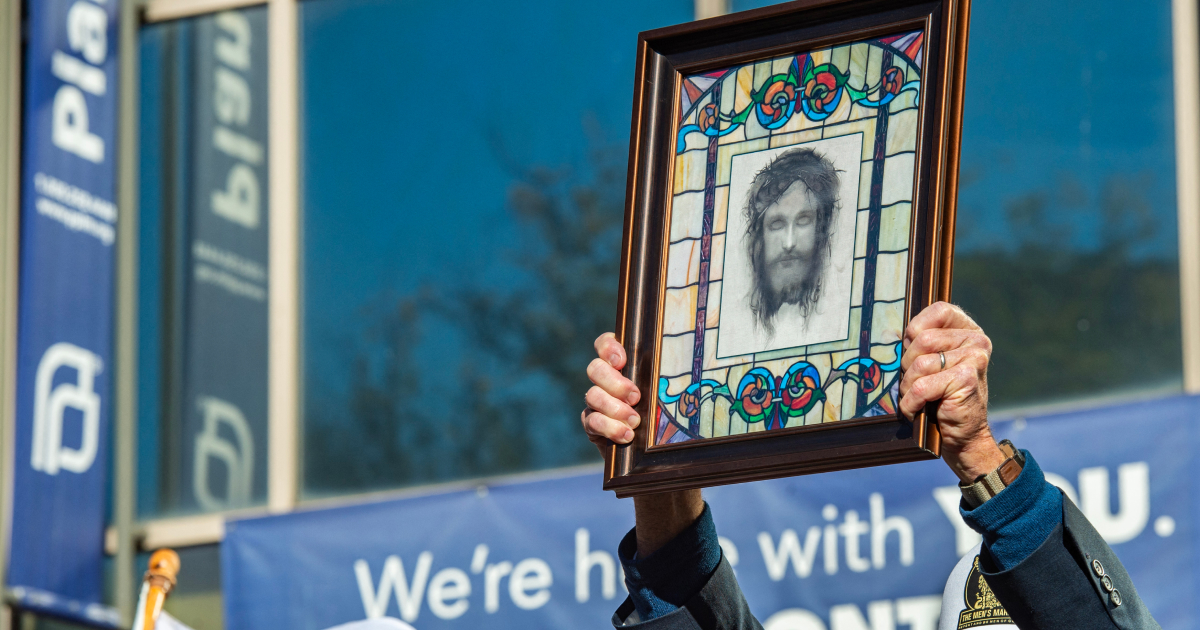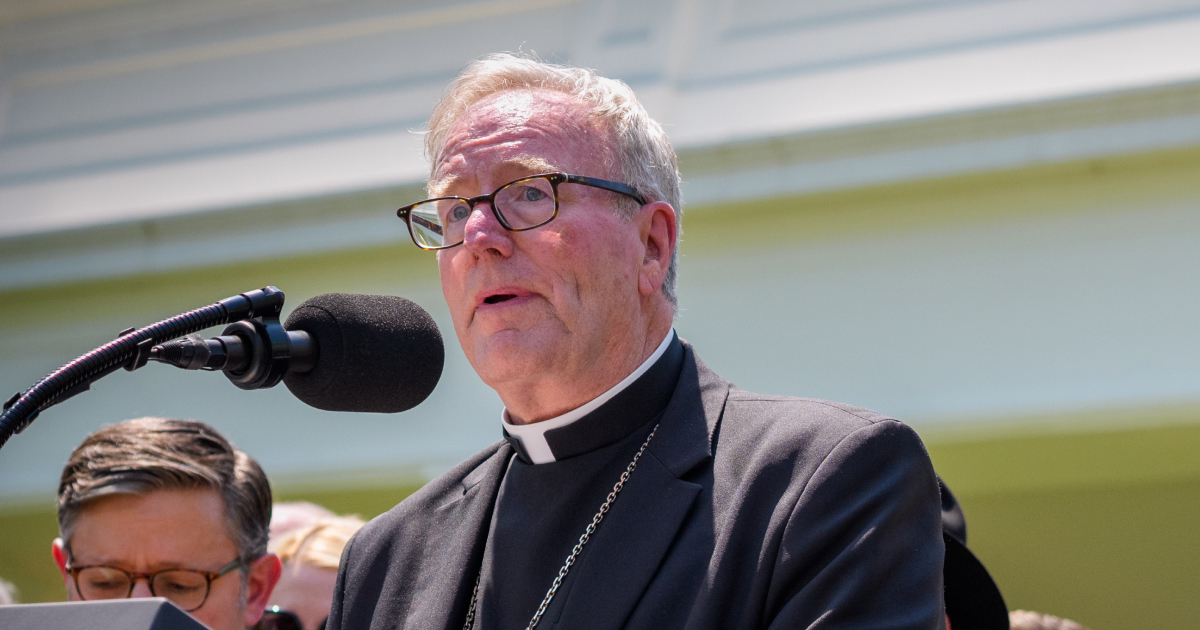Oklahoma's Supreme Court has ruled against what would have been the first publicly funded religious charter school in the US.
The high court determined that a state school board's 3-2 vote last year to approve an application by the Archdiocese of Oklahoma City for the St. Isidore of Seville Virtual Charter School is in violation of the Establishment Clause of the US Constitution, reports the Associated Press.
The clause is part of the US Constitution’s famous First Amendment's that prohibits government from making any law “respecting an establishment of religion”. The ruling also states that both the Oklahoma and US constitutions, as well as state law, were violated.
Public schools have increasingly become a flash point in the so-called culture wars over the content of teaching and curriculum, with controversy about LGBT books and efforts to remove them from the classroom, as well as clashes over children being taught about race, sexual orientation and gender identity.
RELATED: Free but far from equal: Juneteenth, Jim Crow and the legacy of race in America
The Oklahoma case has garnered interest because recent US Supreme Court decisions have indicated the court is more open to public funds going to religious entities. The US Supreme Court could yet consider the case.
“Under Oklahoma law, a charter school is a public school,” Justice James Winchester, an appointee of former Republican Gov. Frank Keating, wrote in the court’s majority opinion, AP reports. “As such, a charter school must be nonsectarian. However, St. Isidore will evangelise the Catholic school curriculum while sponsored by the state.”
The Archdiocese of Oklahoma City and Diocese of Tulsa said in a statement they will “consider all legal options” in response to the court’s ruling.
" decision is a setback for Oklahoma K-12 students and to the ideal of free choice and open opportunity in education," Misty Smith, Principal of St. Isidore of Seville Catholic Virtual School, said in the same statement.
"I, however, will not give up hope that the Court's error may be corrected and that St. Isidore will help
open the path toward a future where the needs of all Oklahoma students and families are fulfilled,
regardless of their background, income, or beliefs."
The court’s decision was 7-1, with one member concurring in part and one member, Chief Justice John Kane IV, recusing himself, the AP notes. Only Justice Dana Kuehn dissented. Five of Oklahoma’s nine Supreme Court justices were appointed by Republicans, four by Democrats.
In her dissent, Kuehn wrote that excluding St. Isidore from operating a charter school based solely on its religious affiliation would violate the Free Exercise Clause of the First Amendment to the US Constitution. The Oklahoma Constitution does not bar Oklahoma from contracting with religious schools as long as state-funded, nonreligious options are available, Kuehn noted.
The state’s high court decided to intervene and rule on the case after being petitioned by Oklahoma’s Republican Attorney General Gentner Drummond, who had urged the board not to approve the contract. A group of Oklahoma parents, faith leaders and a public education nonprofit also sued to stop the establishment of the school. Drummond praised the court’s decision.
“The framers of the US Constitution and those who drafted Oklahoma’s Constitution clearly understood how best to protect religious freedom: By preventing the state from sponsoring any religion at all,” Drummond said in a statement.
St. Isidore of Seville Virtual Charter School was set to start classes, teaching ages 17 -18, for its first 200 enrolees in the autumn. As a result of the decision, the archdiocese is seeking guidance from attorneys on whether to open, according to the executive director of the Catholic Conference of Oklahoma, Brett Farley.
RELATED: Biden in worse trouble than Trump with Catholic voters – especially if they go to Mass
Oklahoma Gov. Kevin Stitt, who supported the board’s decision to help fund the school, expressed disappointment that the state attorney general saw fit to challenge it.
“I’m concerned we’ve sent a troubling message that religious groups are second-class participants in our education system,” Stitt said in a statement. “Charter schools are incredibly popular in Oklahoma – and all we’re saying is: we can’t choose who gets state dollars based on a private entity’s religious status.”
Photo: Downtown Oklahoma City, Oklahoma, US, 16 July 2015. (Photo credit SAUL LOEB/AFP via Getty Images.)
Oklahoma's Supreme Court has ruled against what would have been the first publicly funded religious charter school in the US.
The high court determined that a state school board's 3-2 vote last year to approve an application by the Archdiocese of Oklahoma City for the St. Isidore of Seville Virtual Charter School is in violation of the Establishment Clause of the US Constitution, <a href="https://apnews.com/article/public-religious-catholic-charter-school-unconstitutional-oklahoma-e4ef414605094313331a39cc645ede8a">reports</a> the <em>Associated Press</em>.
The clause is part of the US Constitution’s famous First Amendment's that prohibits government from making any law “respecting an establishment of religion”. The ruling also states that both the Oklahoma and US constitutions, as well as state law, were violated.
Public schools have increasingly become a flash point in the so-called culture wars over the content of teaching and curriculum, with controversy about LGBT books and efforts to remove them from the classroom, as well as clashes over children being taught about race, sexual orientation and gender identity. <br><br><strong>RELATED: <a href="https://catholicherald.co.uk/free-but-far-from-equal-juneteenth-jim-crow-and-the-legacy-of-race-in-america/?swcfpc=1"><mark style="background-color:rgba(0, 0, 0, 0)" class="has-inline-color has-vivid-cyan-blue-color">Free but far from equal: Juneteenth, Jim Crow and the legacy of race in America</mark></a></strong><br><br>The Oklahoma case has garnered interest because recent US Supreme Court decisions have indicated the court is more open to public funds going to religious entities. The US Supreme Court could yet consider the case.
“Under Oklahoma law, a charter school is a public school,” Justice James Winchester, an appointee of former Republican Gov. Frank Keating, wrote in the court’s majority opinion, <em>AP</em> reports. “As such, a charter school must be nonsectarian. However, St. Isidore will evangelise the Catholic school curriculum while sponsored by the state.”
The Archdiocese of Oklahoma City and Diocese of Tulsa said in a <a href="https://files.ecatholic.com/20256/documents/2024/6/Statements%20on%20Oklahoma%20Supreme%20Court%20Ruling%20St.%20Isidore%20of%20Seville%20Catholic%20Virtual%20School%20-%20June%2025%202024-1.pdf?t=1719329368000"><mark style="background-color:rgba(0, 0, 0, 0)" class="has-inline-color has-vivid-cyan-blue-color">statement</mark></a> they will “consider all legal options” in response to the court’s ruling.<br><br>"[The] decision is a setback for Oklahoma K-12 students and to the ideal of free choice and open opportunity in education," Misty Smith, Principal of St. Isidore of Seville Catholic Virtual School, said in the same statement. <br><br>"I, however, will not give up hope that the Court's error may be corrected and that St. Isidore will help<br>open the path toward a future where the needs of all Oklahoma students and families are fulfilled,<br>regardless of their background, income, or beliefs."
The court’s decision was 7-1, with one member concurring in part and one member, Chief Justice John Kane IV, recusing himself, the <em>AP</em> notes. Only Justice Dana Kuehn dissented. Five of Oklahoma’s nine Supreme Court justices were appointed by Republicans, four by Democrats.
In her dissent, Kuehn wrote that excluding St. Isidore from operating a charter school based solely on its religious affiliation would violate the Free Exercise Clause of the First Amendment to the US Constitution. The Oklahoma Constitution does not bar Oklahoma from contracting with religious schools as long as state-funded, nonreligious options are available, Kuehn noted.
The state’s high court decided to intervene and rule on the case after being petitioned by Oklahoma’s Republican Attorney General Gentner Drummond, who had urged the board not to approve the contract. A group of Oklahoma parents, faith leaders and a public education nonprofit also sued to stop the establishment of the school. Drummond praised the court’s decision.
“The framers of the US Constitution and those who drafted Oklahoma’s Constitution clearly understood how best to protect religious freedom: By preventing the state from sponsoring any religion at all,” Drummond said in a statement.
St. Isidore of Seville Virtual Charter School was set to start classes, teaching ages 17 -18, for its first 200 enrolees in the autumn. As a result of the decision, the archdiocese is seeking guidance from attorneys on whether to open, according to the executive director of the Catholic Conference of Oklahoma, Brett Farley.<br><br><strong>RELATED: <a href="https://catholicherald.co.uk/biden-in-worse-trouble-than-trump-with-catholic-voters-especially-if-they-go-to-mass/?swcfpc=1"><mark style="background-color:rgba(0, 0, 0, 0)" class="has-inline-color has-vivid-cyan-blue-color">Biden in worse trouble than Trump with Catholic voters – especially if they go to Mass</mark></a></strong>
Oklahoma Gov. Kevin Stitt, who supported the board’s decision to help fund the school, expressed disappointment that the state attorney general saw fit to challenge it.
“I’m concerned we’ve sent a troubling message that religious groups are second-class participants in our education system,” Stitt said in a statement. “Charter schools are incredibly popular in Oklahoma – and all we’re saying is: we can’t choose who gets state dollars based on a private entity’s religious status.”<br><br><em>Photo: Downtown Oklahoma City, Oklahoma, US, 16 July 2015. (Photo credit SAUL LOEB/AFP via Getty Images.)</em>






